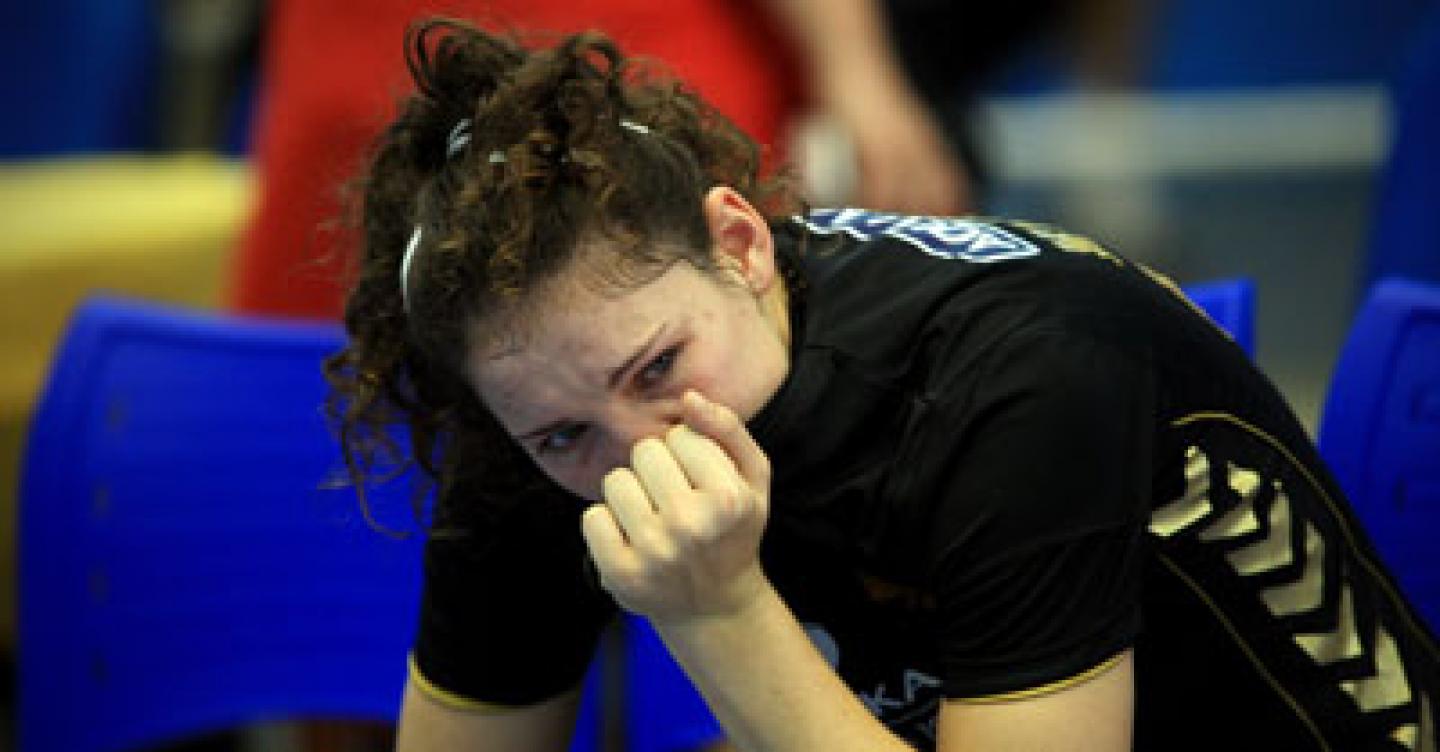Montenegro: Bitter tears and frenetic enthusiasm
12 Dec. 2011

They cried bitter tears, sitting on the floor of the Arena Barueri, trying to find an explanation for what had happened before. The whole team of Montenegro was in a state of shock after losing the eight-final to Spain 19:23. They were too weak in attack to overcome the Iberians and their world class goalkeeper Silvia Navarro. And this match – coach Dragan Adzic mentioned before – was the most important one in the short history of the Handball Federation of Montenegro – as this eight-final should be the gate to the Olympic Qualification Tournaments – or even more.
But the Balkan team still has a chance to pass through this gate, depending on the upcoming eight-finals, the ranking of the positions 9 – 16 and the two tickets given to the best European teams which have not qualified for those tournaments thanks to their result at the 2010 European Championship, where Montenegro finished sixth.
Since 3 June 2006 Montenegro has been an independent country after nearly 90 years as part of Yugosla
via and later Serbia-Montenegro. “Our country is not only very young, but very small, too,” coach Adzic mentioned – but this small country has a great influence on women’s handball. In 2010 at the EHF EURO they were close to the semi-finals, but in the end they lacked power to go on and ranked sixth. “Handball has a long tradition in our region. We have highly skilled and extremely well educated players from the so called Ex-Yugoslavian handball school. We live and we love handball,” Adzic says – and this is why his team and country were hit so hard by the elimination in the eight-finals.
After having surprisingly lost their opener against Iceland, the team – led by world class player Bojana Popovic – played consistently, but lost the decisive encounter against Norway with a narrow one-goal margin. Otherwise they would have finished first of their group, in the end they were third. And this stability and the state of being well-rehearsed is normally the advantage of Montenegro. More than 80 per cent of their players meet every day at training sessions or matches for the top club Buducnost Podgorica, only players like Jovanka Radicevic (Györ/Hungary) or Mirjana Milenkovic (Itxako/Spain) are playing abroad. The rise of Montenegro’s team started, when Bojana Popovic returned first to the national team and later-on (from Danish side Viborg) to Buducnost in 2010. The 32-year-old left back is a five-time winner of the EHF Champions League with several Danish clubs – thanks to her, Podgorica reached the semi-finals of the Champions League last season. Popovic is the absolute role model for handball in Montenegro – but like her team, she failed against Spain. Thanks to her popularity, more and more girls start to play handball. And thanks to this Montenegro’s junior team won the Bronze medal at the 2010 World Championship in Korea – the first ever WCh medal for Montenegro in any team sports.
“When Bojana arrives on the field, the spectators praise her by standing ovations – even the fans of our opponents,” Adzic says, who is also the coach of Buducnost Podgorica. As the top address from Montenegro’s capital is unrivalled in the league, the players can fully concentrate on the Champions League and the national team. But after strong promotion in the previous years, now not only the team but the whole nation have to cope with this defeat in their “match of our lives” against Spain. But life goes on – and maybe the Olympic dream of this small country with their frenetic enthusiasm for women’s handball will come true.

